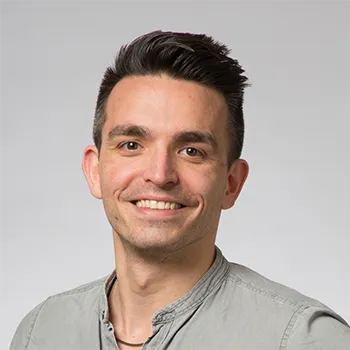
What first attracted you to the field of engineering?
I have always been good at math and science, and loved building things! For as long as I can remember, my parents had told me that I was going to be an engineer when I grew up. As a child in the US, I thought this meant I was going to drive trains and was so excited!
At university in the US, I began studying mechanical engineering and realized it didn’t fulfil all my interests – while I loved creation and making “things”, what I missed was the “why”. Why do people care about or need these things to start with? Why do people attach such importance to things and events that are, in the grand scheme of things, meaningless? As such, I started to study anthropology, and decided I wanted to be an “anthroengineer”.
What do you think is the biggest misconception people have about engineering?
Engineering is hard but it doesn't need to be. In a lot of disciplines, people often think students and those learning need to “put in the work” in the same way they did. So much has changed in recent years in terms of the tools and methods available that it would be silly to think they had to learn the same tools and methods that I had to learn when I studying engineering in 2006.
This is one of the things I really like about the department of engineering in NMES at King’s. Barbara Shollock and Claire Lucas have done an amazing amount of work laying the foundations for a “new type” of engineering, one which breaks stereotypes, is much more engaging, and develops students that are much more well-rounded. It’s one of the reasons I wanted to join King’s.
Is there an engineer in history, or today, who is your biggest inspiration/role model? And why?
I can't say I really have one. I know it may sound silly, but I've met everyone who has inspired me or served as a role model and one of the things I learned was that no one is perfect. Once you learn that, people who once served as inspiration or role models lose their “shininess” and become “mortal” for lack of a better word!
In the end, we are all human and no one can do it all. As such, I have many people that I aspire to be like for very specific reasons. I also have many people who I try to avoid being like for very specific reasons. People I aspire to be like are those who are successful but maintain a good work life balance and promote a good work life balance among those they work with. I also aspire to be inclusive in my own lab and create an environment which enables students to be the best version of themselves. Equality is a central component of my belief system, and I try to instil that in my lab and in my classroom.
What advice would you give to someone considering studying engineering?
Talk to engineers! You will find there are many forms of engineering, and you’ll probably find one that works for you. For example, I incorporate the social sciences and biology into my research all the time, and in that way I am not the typical engineer, and it helps me create solutions that are more equitable and sustainable.
Aside from engineering, what do you do in your spare time?
I absolutely love cooking, and love my fruit trees and vegetable garden! My husband and I also have two cats, a rabbit, and three fish tanks, and my (cuddly) animals bring me more joy than I can describe.
I travel a lot, mostly for work or to see family, and love seeing the world. Last summer I spent time doing work in Sri Lanka and Tanzania. This summer I went to Australia. Travelling can be tiring, but it always inspires me.